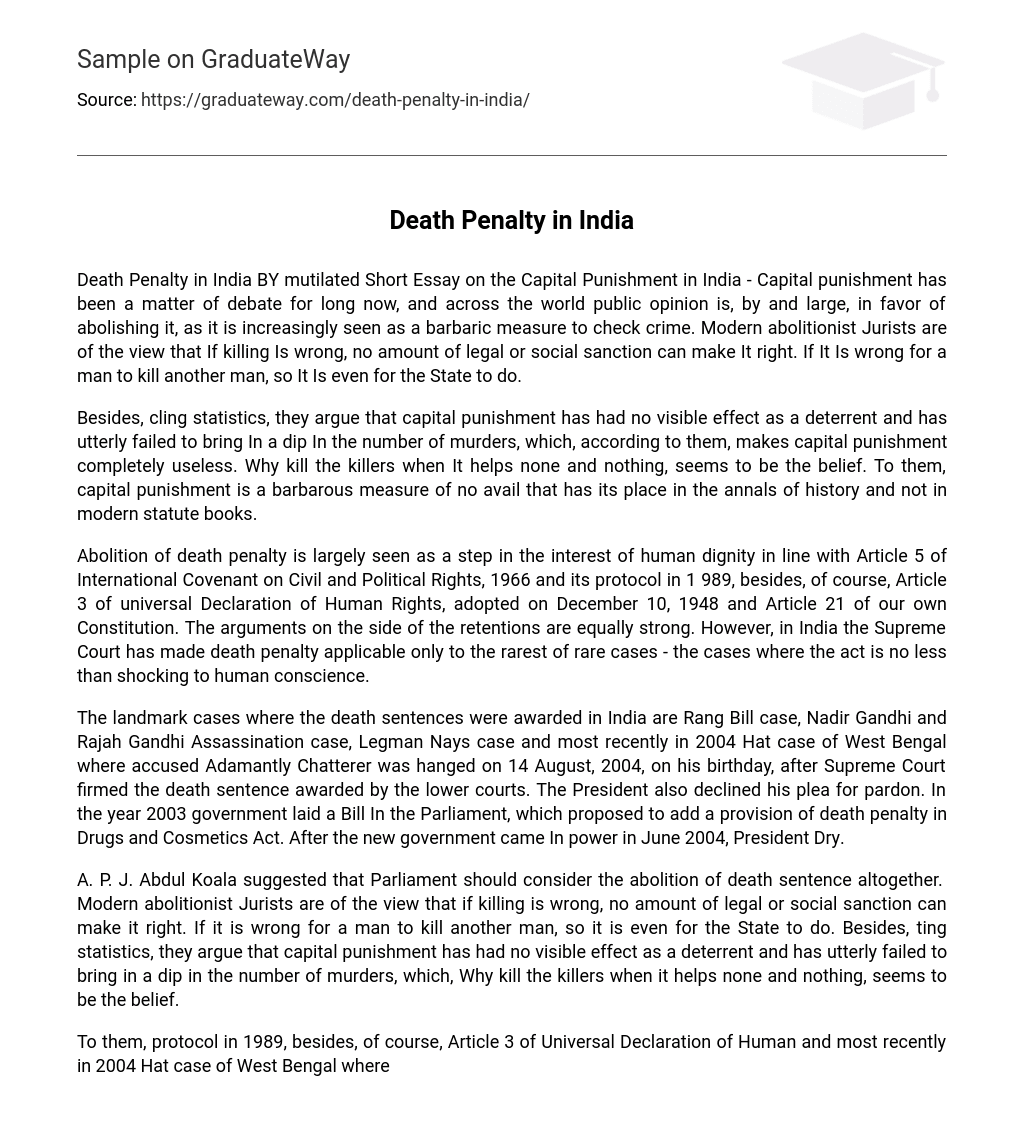Capital punishment has been a matter of debate for long now, and across the world public opinion is, by and large, in favor of abolishing it, as it is increasingly seen as a barbaric measure to check crime. Modern abolitionist Jurists are of the view that If killing Is wrong, no amount of legal or social sanction can make It right. If It Is wrong for a man to kill another man, so It Is even for the State to do.
Besides, cling statistics, they argue that capital punishment has had no visible effect as a deterrent and has utterly failed to bring In a dip In the number of murders, which, according to them, makes capital punishment completely useless. Why kill the killers when It helps none and nothing, seems to be the belief. To them, capital punishment is a barbarous measure of no avail that has its place in the annals of history and not in modern statute books.
Abolition of death penalty is largely seen as a step in the interest of human dignity in line with Article 5 of International Covenant on Civil and Political Rights, 1966 and its protocol in 1 989, besides, of course, Article 3 of universal Declaration of Human Rights, adopted on December 10, 1948 and Article 21 of our own Constitution. The arguments on the side of the retentions are equally strong. However, in India the Supreme Court has made death penalty applicable only to the rarest of rare cases – the cases where the act is no less than shocking to human conscience.
The landmark cases where the death sentences were awarded in India are Rang Bill case, Nadir Gandhi and Rajah Gandhi Assassination case, Legman Nays case and most recently in 2004 Hat case of West Bengal where accused Adamantly Chatterer was hanged on 14 August, 2004, on his birthday, after Supreme Court firmed the death sentence awarded by the lower courts.
The President also declined his plea for pardon. In the year 2003 government laid a Bill In the Parliament, which proposed to add a provision of death penalty in Drugs and Cosmetics Act. After the new government came In power in June 2004, President Dry. A. P. J. Abdul Koala suggested that Parliament should consider the abolition of death sentence altogether. Modern abolitionist Jurists are of the view that if killing is wrong, no amount of legal or social sanction can make it right. If it is wrong for a man to kill another man, so it is even for the State to do.
Besides, ting statistics, they argue that capital punishment has had no visible effect as a deterrent and has utterly failed to bring in a dip in the number of murders, which, Why kill the killers when it helps none and nothing, seems to be the belief. To them, protocol in 1989, besides, of course, Article 3 of Universal Declaration of Human and most recently in 2004 Hat case of West Bengal where accused Adamantly In the year 2003 government laid a Bill in the Parliament, which proposed to add a came in power in June 2004.





